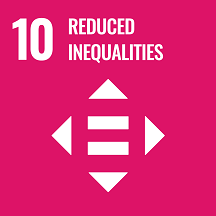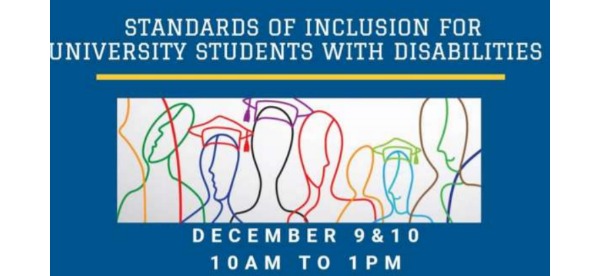
INSTITUTIONAL ACTIVITIES
“Within its area of competence, the University guarantees the dignity and respect of basic human rights, equal opportunities and the value of diversity; it promotes a culture of peace; it is committed to preventing and contrasting any form of discrimination.” (Statute – Art. 2 – Fundamental principles and guarantees).
The concrete commitment of the University of Trieste to realise the principles of inclusion can be found in:
- the work of the Comitato unico di garanzia per le pari opportunità, la valorizzazione del benessere di chi lavora e contro le discriminazioni (Single Guarantee Committee for equal opportunities, the valorisation of the wellbeing of working people and against discrimination) - CUG.
- the "Codice di comportamento per la prevenzione delle molestie nei luoghi di lavoro e di studio dell’Università degli Studi di Trieste a tutela della dignità della persona” (University of Trieste Code of Conduct for the prevention of harassment in the place of work or study and the protection of personal dignity);
- the institution of the position of ‘Confidential Counsellor’ responsible for providing information, advice and free support to members of the University community who suffer discrimination harassment and violation of their dignity or mobbing;
- measures for students to ensure that no student is excluded from an education of quality because of economic difficulties: through a) progressive fees based on income, full or partial exemption, reductions for needy or meritorious students; b) grants and scholarships for study and research
- a University welfare system that provides reductions and contributions for personal and family needs;
- the work of the Servizio Disabilità e Disturbi dell’Apprendimento (Disability and Learning Difficulties Service – DSA), which, among other things, includes:
- organisation of the “Inclusion Job Day” to facilitate employment inclusion of the diversely-able;
- participation in the “International Day of Persons with Disabilities” (instituted by UN General Assembly resolution in 1992);
-
 participation in the European Network of Inclusive Universities (Euni4all-Network) project, funded under the Erasmus+ - Key Action 2 “Cooperation for innovation and the exchange of good practices” programme, which seeks to promote international mobility of diversely-able students and raise awareness in the University community regarding access and social inclusion;
participation in the European Network of Inclusive Universities (Euni4all-Network) project, funded under the Erasmus+ - Key Action 2 “Cooperation for innovation and the exchange of good practices” programme, which seeks to promote international mobility of diversely-able students and raise awareness in the University community regarding access and social inclusion;
- participation in the “Conferenza nazionale universitaria dei delegati per la disabilità” (National University Conference of Delegates for Disability);
- organisation in 2022 of the 6th International Conference on Universal Design on the topic of “Planning for all” to construct buildings and environments suitable for the well-being of users irrespective of their abilities.
- the work of the Psychological Consultancy Service;
- participation in the Workgroup “Inclusione e Giustizia Sociale” (Inclusion and Social Justice) within the Rete delle Università per lo Sviluppo Sostenibile (Network of Universities for Sustainable Development - RUS) with the aim of strengthening the role of universities in the construction of inclusive, sustainable and equitable contexts attentive to gender equality, focused on social justice and able to fight inequality;
- a series of building measures to remove architectonic barriers and guarantee access to University facilities and services for all;
-initiatives of the Rector’s Delegates for:
- Special teaching needs and disability;
- Teaching and Policy for students and the right to study
- Human resources, trade union and welfare policies
- Working conditions, workers’ health and safety
- Buildings and energy
TEACHING
The teaching programmes of the University’s first degree courses, Master’s degree courses, doctorates and postgraduate programmes include teaching that references specific topics of Goal 10, in particular in the socio-economic, legal, life sciences and health fields.
RESEARCH AND THIRD MISSION
Research, third mission, knowledge transfer and public engagement work undertaken in departments (ArTS – Archivo della ricerca di Trieste (Trieste Research Archive)) contribute to the realisation of Goal 10.
Last updated on: 20/06/2022 - 11:49
